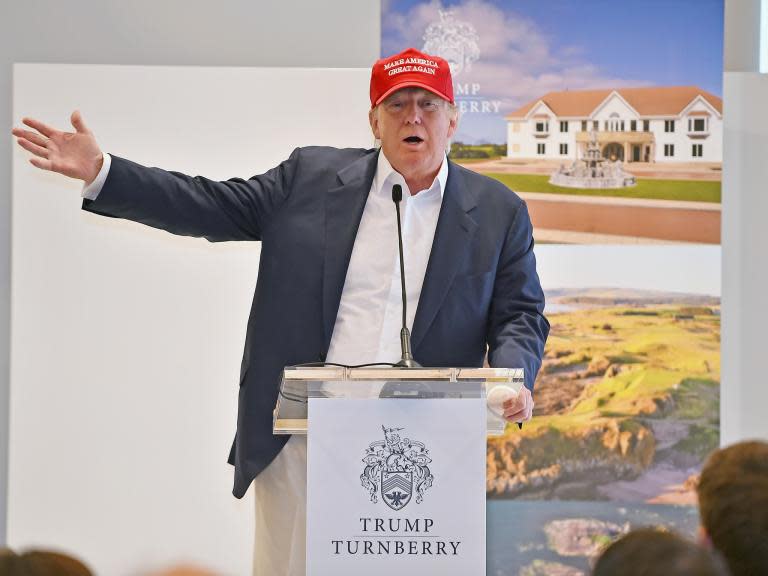Trump brings illegal US-style ‘resort fees’ to UK for first time
Donald Trump’s empire has brought the “resort fee” to the UK. It is believed that a £20 nightly charge imposed on guests at the Trump Turnberry in Scotland is the first time this US practice of adding a mandatory fee has appeared in Britain.
But after The Independent raised questions about its legality, the resort fee has suddenly been dropped.
Guests at the Trump Turnberry in Ayrshire were told the £20 per room per night resort fee covered amenities such as wifi, the swimming pool and in-room coffee machines.
The Independent believes these and other facilities were previously included in the room rate, but the hotel has declined to answer any questions about the fee.
One guest, who did not wish to be named, said: “I really cannot see any reason for the introduction of this new fee, other than it is an attempt to confuse consumers about the real price of the stay.”
On an online forum, one contributor wrote: “It’s appalling to see these gotcha junk fees turn up on these shores and I sincerely hope Scottish Trading Standards act aggressively to stamp out this shady practice.”
Another comment read: ”If the place is worth an extra £20 on the price then why not just add £20 to the price and let the punters decide if it’s worth it?
“The only possible reason to do it this way is that they hope we don’t notice till its too late.”
Pricing rules in Scotland and the rest of the UK require quoted rates to include all obligatory taxes and charges.
When the Trump Turnberry imposed the fee, guests booking direct were quoted rates “+ £20 charges due at hotel”.
Some online travel agents also mentioned the resort fee, but others did not. In a series of test bookings, Agoda – a sister company to Booking.com – failed to mention any extra fees.
The Independent has tried to establish whether guests who booked through this platform would be charged the resort fee, but the hotel has declined to respond this and other questions repeatedly posed over a number of days.
The resort fee is an American concept that first appeared in 1997. The widely held view is that it is used as a device designed to flatter a hotel’s rates on price-comparison sites, and to allow hotels to reduce commission paid to online travel agents.
For example, anyone searching for a room in Las Vegas on 1 April on the Trivago platform will be told the Trump International is available for £74 through Travel Republic. But at the check-out stage buyers are told: “A mandatory resort fee of approximately $26-30 [£19-£21] per room, per day will need to be paid to the hotel directly.”
In fact the resort fee is $35 (£25), increasing the cost by more than one third. A spokesperson for Travel Republic said: “We rely on third party suppliers to provide this information and ensure it is as up to date as possible. Based on the insight you have provided we acknowledge that in this instance the resort fees are incorrect.
“We will be picking this up directly with our supplier to get this rectified as soon as possible.for clarification.”
The Federal Trade Commission estimates seven per cent of US hotels impose resort fees, bringing in about £2bn in a year. Resort fees are also applied to “free” stays earned with loyalty points.
The Competition and Markets Authority (CMA) is investigating whether hotel booking websites are misleading travellers, preventing them finding the best deals.
In October 2017, the CMA said it would look at: “The extent to which sites include all costs in the price they first show customers or whether people are later faced with unexpected fees, such as taxes or booking fees.”



